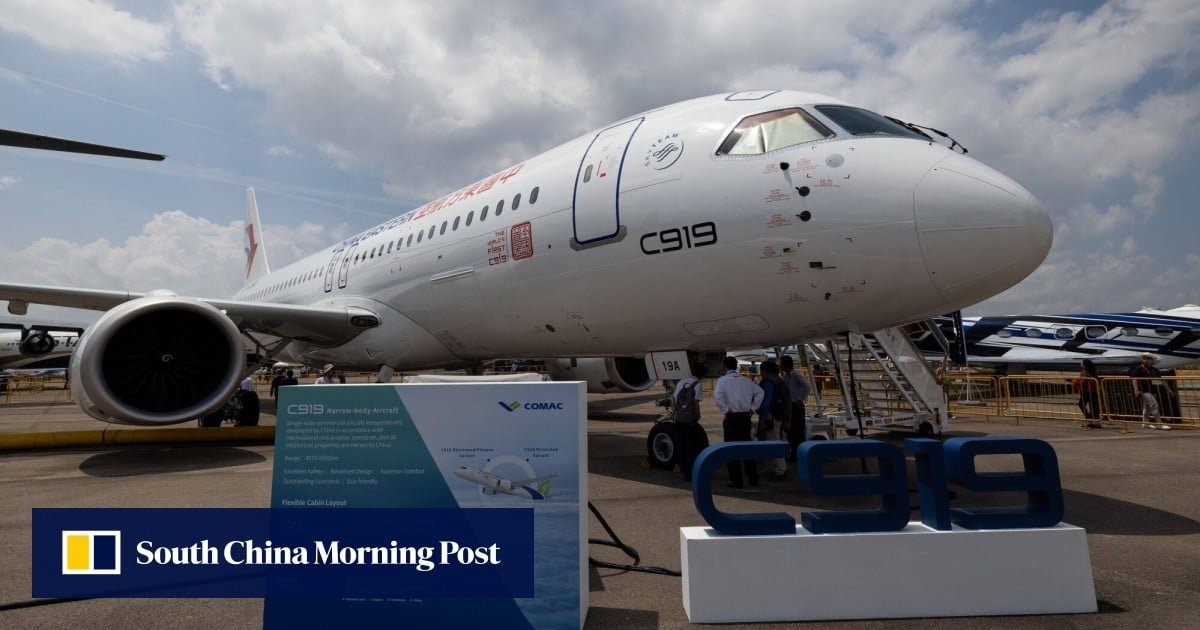Officials from Langfang, a city in Hebei province near national capital Beijing, and Taicang of the eastern Jiangsu province, gave presentations at the international aviation event, pitching the advantages of China’s aviation sector to attendees.
[We will] make Taicang one of the best destinations for aerospace investment and development
Qian Lili, deputy director of Taicang’s investment promotion bureau, said that the global aviation industry is entering “a period of transformation” as a result of the coronavirus pandemic, geopolitical tensions and heightened demand for sustainable development. The city is home to some of the C919’s suppliers.
“Taicang focuses on the high-end, intelligent and green development [of aviation],” Qian said at the China-Singapore Bilateral Aviation Forum, adding that the government is offering a range of benefits to spur activity, including rent reimbursement for talented individuals in the workforce.
Aircraft engines, critical components, materials and airborne systems are all areas of interest for the city, Qian added.
“Taicang will try its best to optimise its business environment,” Qian said. “And [we will] make Taicang one of the best destinations for aerospace investment and development.”
Ding Ling, vice-mayor of the Langfang government and director of the management committee for the Beijing Daxing International Airport Economic Zone, said the city is preparing 20 million yuan (US$2.8 million) for an “industry guidance fund” to finance companies that will help the region meet its goal to build a 100-million-yuan aerospace industry.
Hurdles are also fast appearing as China hurries to grow its advanced technology supply chain to hedge against deteriorating relations with the US.
The restrictions have added to foreign investors’ concerns over China’s staying power as a manufacturing hub.
Mabel Kwan, managing director at Alton Aviation Consultancy, said near-shoring strategies by multinationals in the aviation industry is on the rise following pandemic-era supply chain disruptions and changing geopolitical circumstances, but added such an approach is likely to bring about more costs in the short term.
“We definitely anticipate a high-cost environment, because there’s a reduction of skill, and there’s duplicated resources,” Kwan said.













